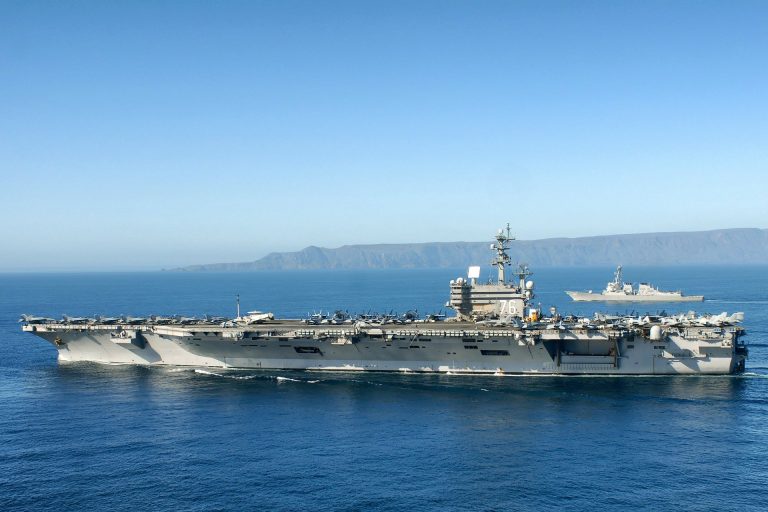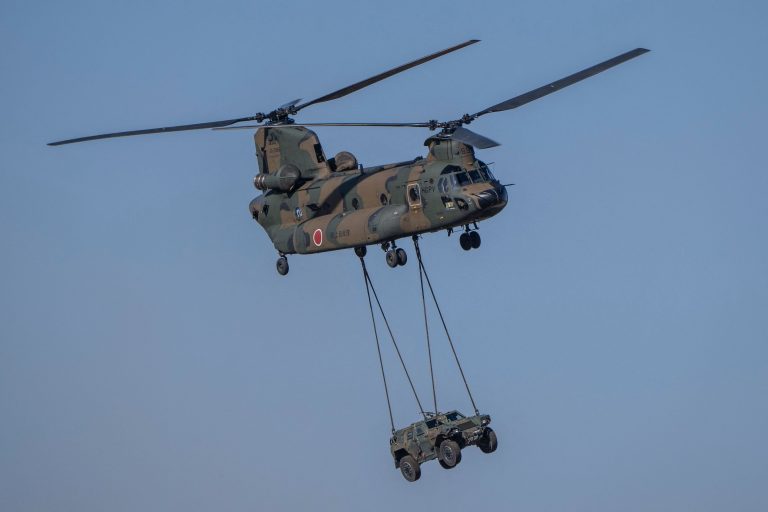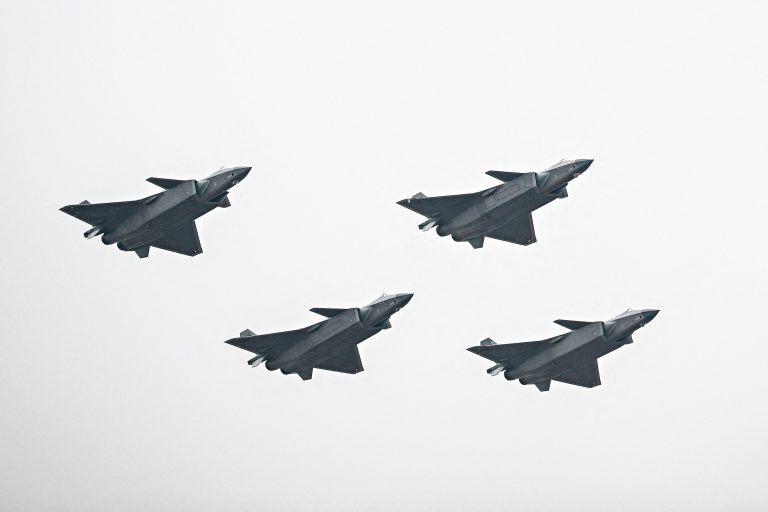On Sept. 24, leaders from the four-nation Quad group met at the White House to discuss efforts to maintain rule of law in the Indo-Pacific region, which is experiencing increasing Chinese aggressiveness. In a joint statement, the heads of the United States, Australia, India, and Japan committed to an Indo-Pacific that is “inclusive and resilient.” Despite the Coronavirus Disease 2019 (COVID-19) pandemic causing global havoc and regional security issues affecting the four countries, the Quad cooperation “remains unflinching.”
“Together, we recommit to promoting the free, open, rules-based order, rooted in international law and undaunted by coercion, to bolster security and prosperity in the Indo-Pacific and beyond. We stand for the rule of law, freedom of navigation and overflight, peaceful resolution of disputes, democratic values, and territorial integrity of states,” the joint statement said. It also stated that the Quad supports the Association of Southeast Asian Nations (ASEAN)’s focus on unity in the region.
The leaders agreed that their shared futures will be “written in the Indo-Pacific” and that they will “redouble efforts” to ensure that the four-nation group is a force for peace, stability, prosperity, and security in the region. To this end, the Quad will champion adherence to international law, specifically the UN Convention on the Law of the Sea (UNCLOS) to meet the challenges in the East and South China Seas.
UNCLOS is an international treaty signed by 167 nations that establish a legal framework for all maritime activities. According to the treaty, all nations have complete control over 12 nautical miles of their coastline. In addition, an extra 200 nautical miles can be claimed as an exclusive economic zone (EEZ), where the country has the right to exploit marine resources.
Beyond the EEZ lies international waters. China does not recognize the UNCLOS law and insists that its own defined boundaries in the South China Sea must be honored, which other nations in the region do not accept.
Success
You are now signed up for our newsletter
Success
Check your email to complete sign up
Indian Prime Minister Narendra Modi stated that the Quad will play the role of “a force for global good.” At a press conference, President Joe Biden said that the meeting of the Quad leaders is aimed at tackling “key challenges of our age.” He highlighted that the nations in the Quad are “four major democracies” that have a long history of cooperation. The president insisted that the Quad knows “how to get things done” and is “up to the challenge.”
On Sept. 23, Biden administration officials also revealed that the Quad was setting up a “very high-level group” to boost cyber resilience against potential attacks. Experts believe that such efforts are necessary because Beijing is rushing forward with the development of cyberespionage and anti-satellite weapons. In recent times, there have been multiple attacks on critical U.S. infrastructure, including the agriculture and natural gas sectors.
“We have a robust cybersecurity effort underway with the State Department that’s going to be enhanced at the leader level… We’re going to try to take steps to bolster critical infrastructure resilience against cyber threats—something that’s plagued all four of our countries,” a senior Biden administration official said in a press call regarding the Quad.
The Quad meeting took place just weeks after the four nations participated in the Malabar 2021 naval exercises in Indian waters during the last week of August. This was the second straight year that all four nations of the Quad participated in the exercises. Some security experts believe that the military drills could be an opportunity to coordinate international strategies against the Chinese Communist Party (CCP).
However, Chad Sbragia, a research analyst for the Intelligence Analyses Division of the Institute for Defense Analyses, thinks that the Malabar exercises were not specifically performed with China in mind. Instead, the exercise acquired an anti-China label due to “systemic rivalry.”
In an interview with The Epoch Times, Sbragia points out that there is an ongoing rivalry between two versions of international systems. In the conflict with China, it is the rules-based international order that is at stake.
“‘Strategic competition’ makes it sound much more like it’s a bilateral issue between the United States and China… Certainly, in many ways it is. But there’s a bigger picture at stake, which is the system that virtually all of the countries in the world have bought into, helped build, contributed to, lean on, and continue to leverage,” Sbragia said.















